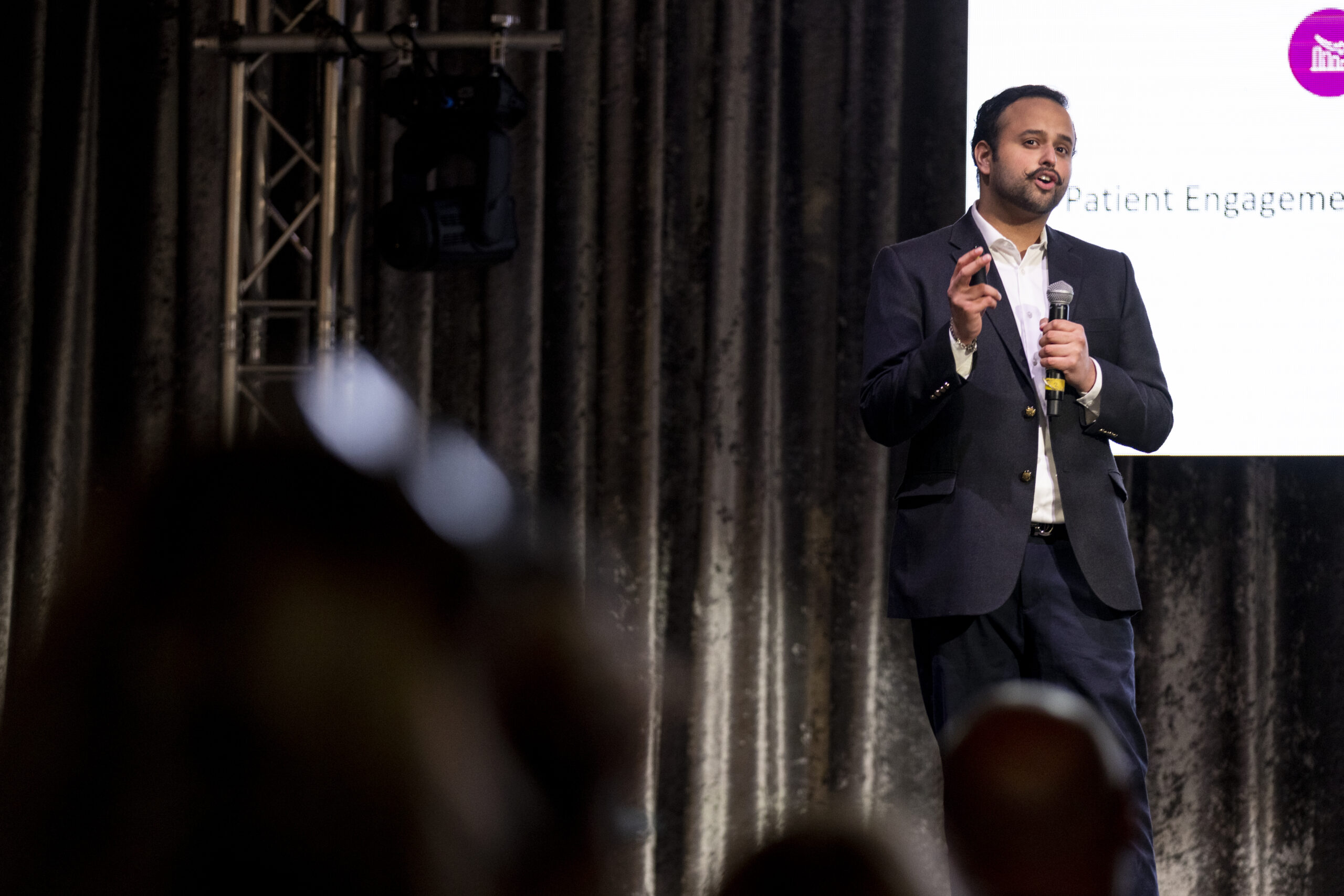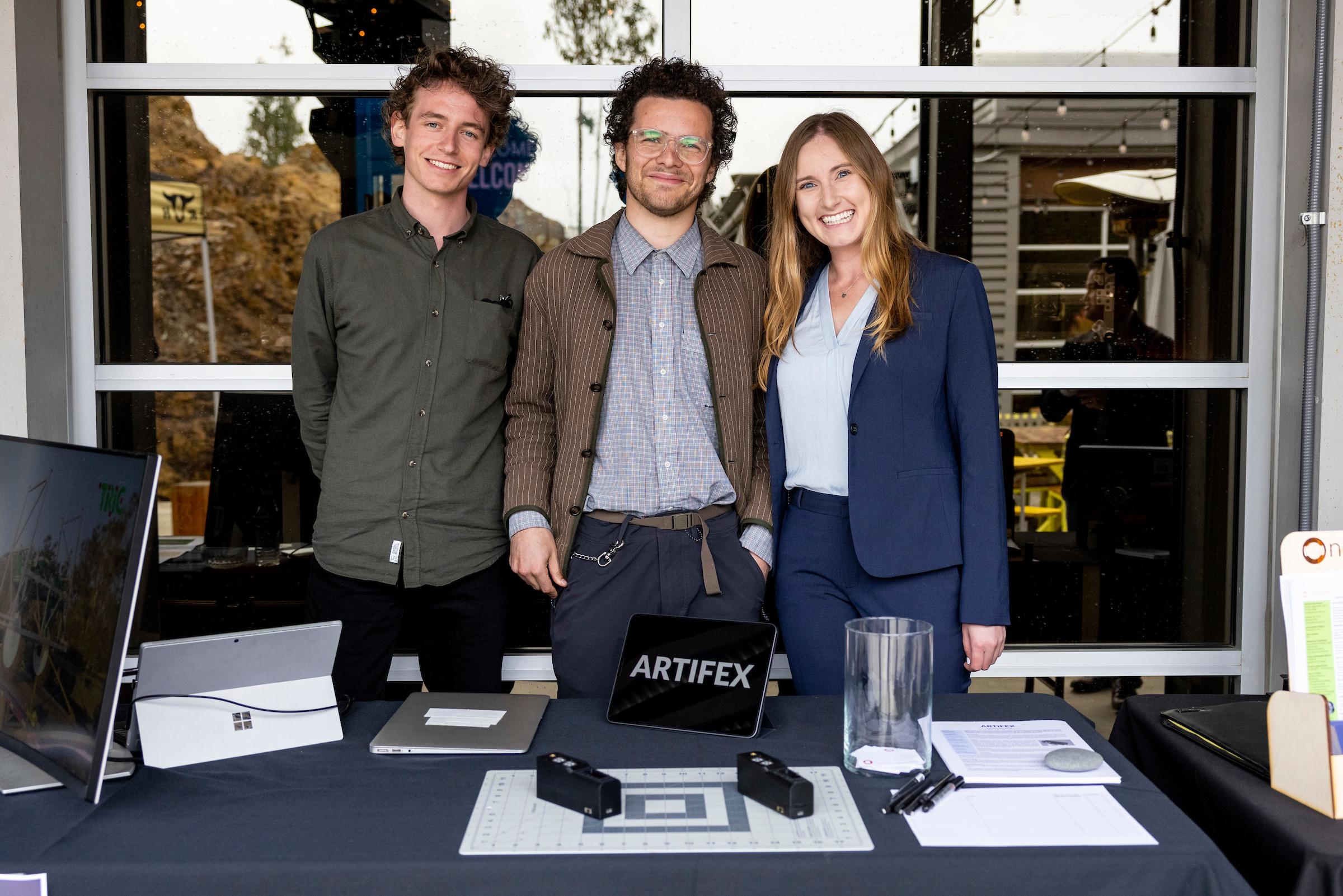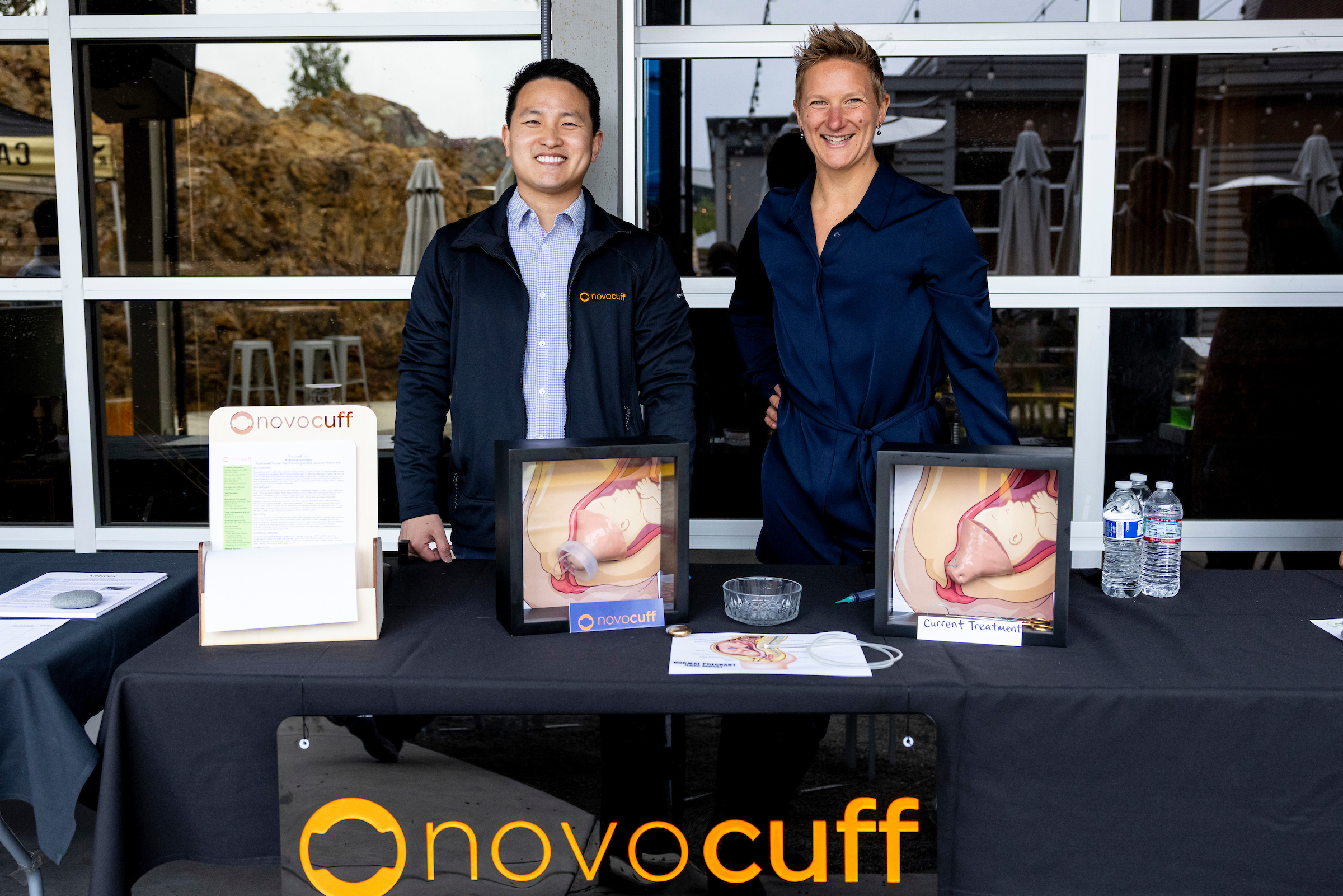Incubator Spotlight: Mense
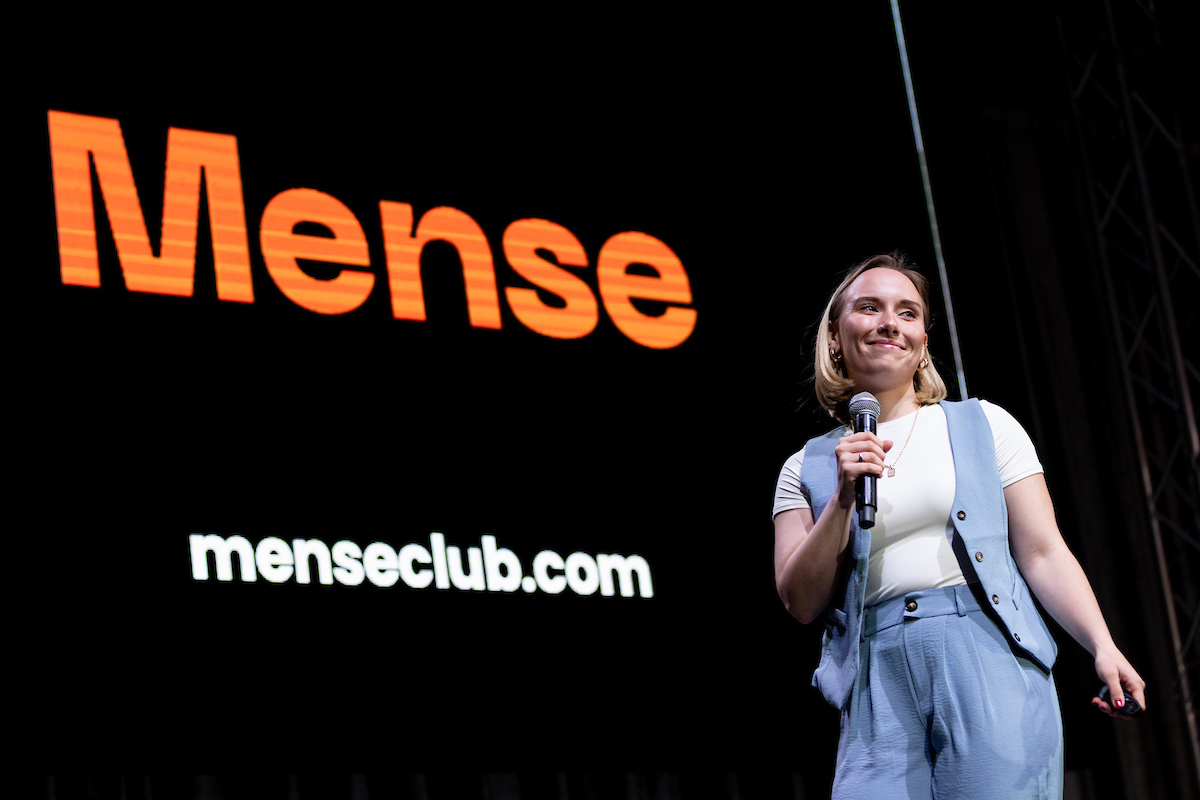
Mense is a period product company with a mission to provide a comfortable, safe and working solution for people with periods. Founded in 2022 by California Polytechnic State University (Cal Poly) biomedical engineering graduate McCall Brinskele, Mense aims to destigmatize menstruation and elevate the conversation surrounding this essential aspect of reproductive health.
While Brinskele was taking a course at Cal Poly focusing on biomedical engineering in women’s health, her sister was diagnosed with endometriosis and uterine fibroids. The reality of female reproductive health conditions and Brinskele’s learning of the lack of coverage in the women’s health space inspired Brinskele to create a platform addressing this underrecognized topic.
“I first began working on this company as part of my interdisciplinary senior design project, which was a wonderful experience,” says Brinskele. “It’s awesome that Cal Poly has the ability for students to work with other disciplines outside of their major.”
Mense quickly earned a spot in the Cal Poly Center for Innovation and Entrepreneurship’s (CIE) 2022 Summer Accelerator, a 12-week intensive program where Cal Poly students and recent graduates transform their business ideas into startups with the help of a $10,000 seed fund and local resources.
After completing the Summer Accelerator, Mense joined the Cal Poly CIE Incubator program,which helps early-stage startups develop into financially secure and scalable enterprises providing entrepreneurs with mentorship, funding opportunities and other resources over two years.
“The Incubator is the next step of growth for companies that are moving from just an idea and a product to incorporating and taking on investment,” says Brinskele.
The program has connected Mense to business professionals in various fields, including Novocuff, a graduated Incubator company also focused on female reproductive health, which has been an asset for Mense.
“Dr. Christopher Heylman is a personal mentor to our company. His advice has been absolutely crucial when it comes to our prototyping and securing non-dilutive funding. Kelly Sooter is another wonderful marketing consultant that we work with,” says Brinskele.
In May 2024, Brinskele brought Mense to the seventh annual AngelCon competition, where six tech startups compete for over $100,000 in equity funding. After pitching to an audience of 250 attendees and over 20 angel investors, Mense received a $50,000 investment.
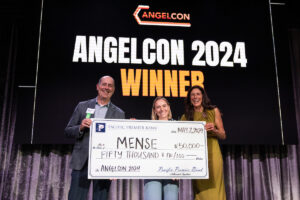
Photo by Ruby Wallau for SBDC
“The Incubator played a crucial role in helping us prepare for AngelCon,” remarks Brinskele. “We heavily leaned on all of our consultants when it came to pitch prep and making sure everything was together, and the boot camp was an absolutely amazing experience.”
As an entrepreneur who has utilized several programs offered by Cal Poly and the CIE, including lecturing for classes in the Orfalea College of Business, Brinskele is always looking for growth. She encourages new entrepreneurs to do the same, by being unafraid to ask questions and never fear failure.
“For anyone who’s applying to the Incubator program, I would say go for it. Lean into your connections. You never know who’s going to be helping you in the future.”
Mense is currently working with manufacturers on a final design for their menstrual cup and applicator product and will graduate from the Incubator program in 202

